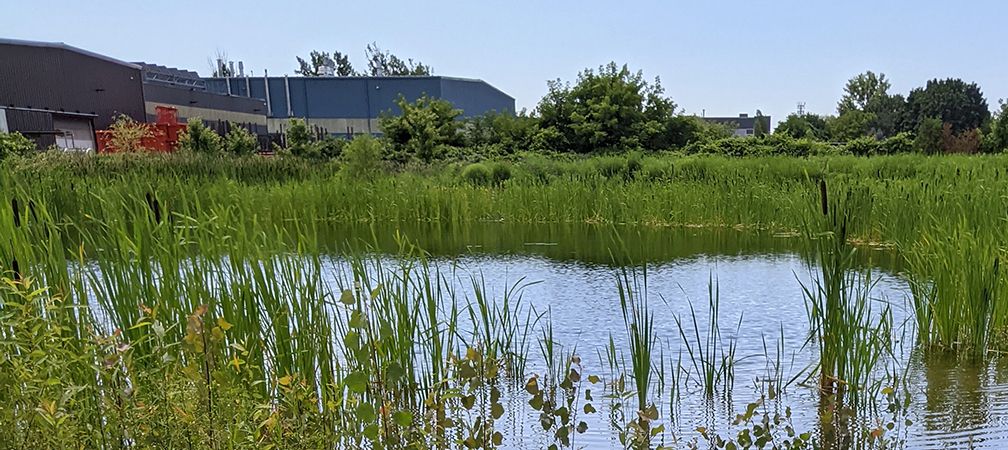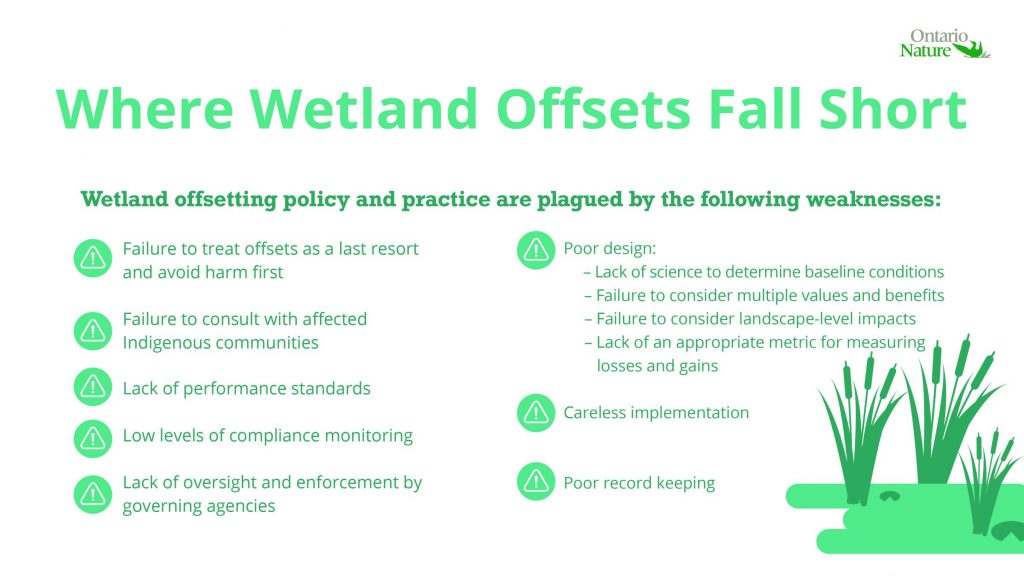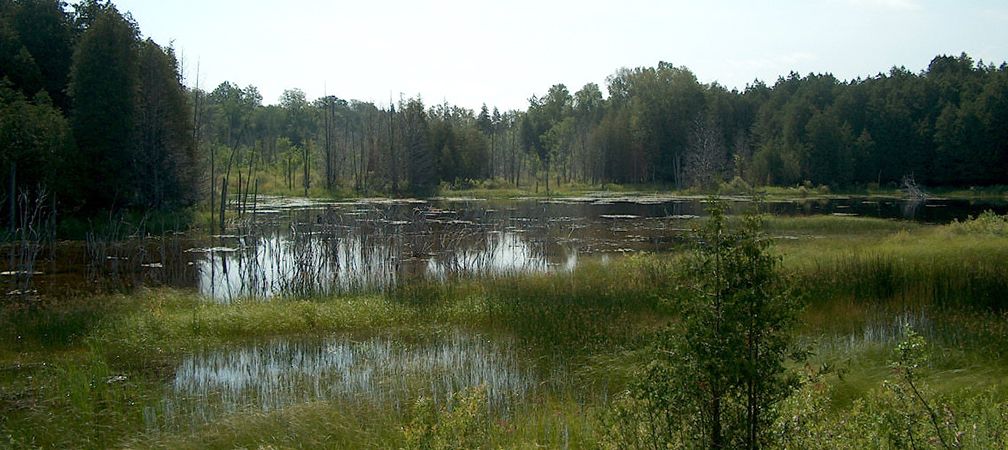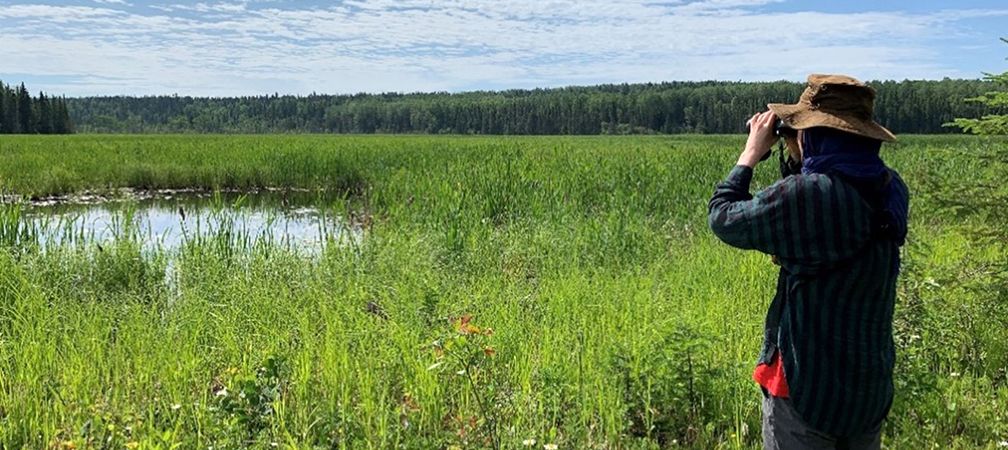Ontario Nature Blog
Receive email alerts about breaking conservation
and environmental news.
© Lora Denis
Malcolm Kirk Nature Reserve © Emma Horrigan
Recent and proposed changes to land use planning at the provincial level have eroded protections for wetlands and other natural areas (e.g., Greenbelt land removals, Bill 23, gutting the Ontario Wetland Evaluation System, and the government’s proposal to replace the Provincial Policy Statement). In the throes of these harmful policy changes, the Ontario government is also proposing a new policy on provincial natural heritage offsetting.
Ample evidence suggests offsetting is an extremely risky practice with a very low record of success. In response to the new offsetting policy proposal, Ontario Nature has released a new report – Wetland Offsetting Policies for Local Planning Authorities: A Review of Wise Practices in Ontario. It provides a framework, key information, and examples for developing and assessing offsetting policies to help ensure the best possible outcomes for wetlands and the communities that depend on them.

Wetland offsetting involves an extremely risky trade-off whereby conservation actions (e.g., the creation or restoration of wetlands) are implemented to compensate for wetland destruction or degradation. It is a trade-off that seldom works in nature’s favour. Although offsetting policies are often guided by the objective of achieving no net loss of wetland features, research has repeatedly demonstrated that this goal is rarely achieved.

Despite its poor record, the practice of offsetting has been gaining popularity. With a provincial policy in the works, it is more important than ever to understand the limited situations in which offsetting might be appropriate and the precautions and policy measures needed to minimize risks.
Ontario has already lost over 72 percent of wetlands south of the Canadian Shield. Given the critical role of wetlands in addressing the dual crisis of climate change and biodiversity loss, we simply cannot afford to lose any more.

This report is a valuable resource for local planning authorities and community members. It provides a framework and examples to create offsetting policies that will secure the best possible outcomes for wetlands.
The new report outlines 10 criteria to guide the development and review of wetland offsetting policies based on the following considerations:
The criteria reflect significant agreement among experts about the policies needed to establish conditions under which wetland offsetting would most likely succeed and provide a net benefit.

Drawing from excellent work of land use planning authorities across Ontario, the report then presents sample policies that provide strong models, where available, for the criteria. Each example is analyzed to highlight its strengths.
The report also identifies significant gaps that exist with respect to the scope of policy goal, engagement with Indigenous communities, metrics that quantify offset equivalence, and public transparency and reporting.
Lastly, the report provides draft policies for consideration that reflect each criterion, building on existing wise practices and addressing identified gaps.
We hope this report will be widely shared and taken up as a useful resource by all seeking to halt and reverse the decline of wetlands in Ontario. There is no time like the present for local planning authorities to demonstrate their leadership by developing offsetting policies based on wise practices.
Ontario Nature’s wetland initiative is generously funded by the K.M. Hunter Charitable Foundation, the McLean Foundation and the John and Pat McCutcheon Charitable Foundation.

Laurel Creek Conservation Area © Carl Hiebert / Grand River Conservation Authority
I fear that we are spitting in the wind when it comes to protecting wetlands and other natural features so long as Doug Ford remains premier. He is tone-deaf when it comes to the environment and simply cannot be reached. The best way to preserve wetlands in our province is to kick Ford and his cronies out of office and then roll back all of their destructive policy and legislative changes regarding the natural environment. Hopefully, this will happen in 2026. In the meantime, those who care about nature can only try to minimize the ecological damage the current government is doing.